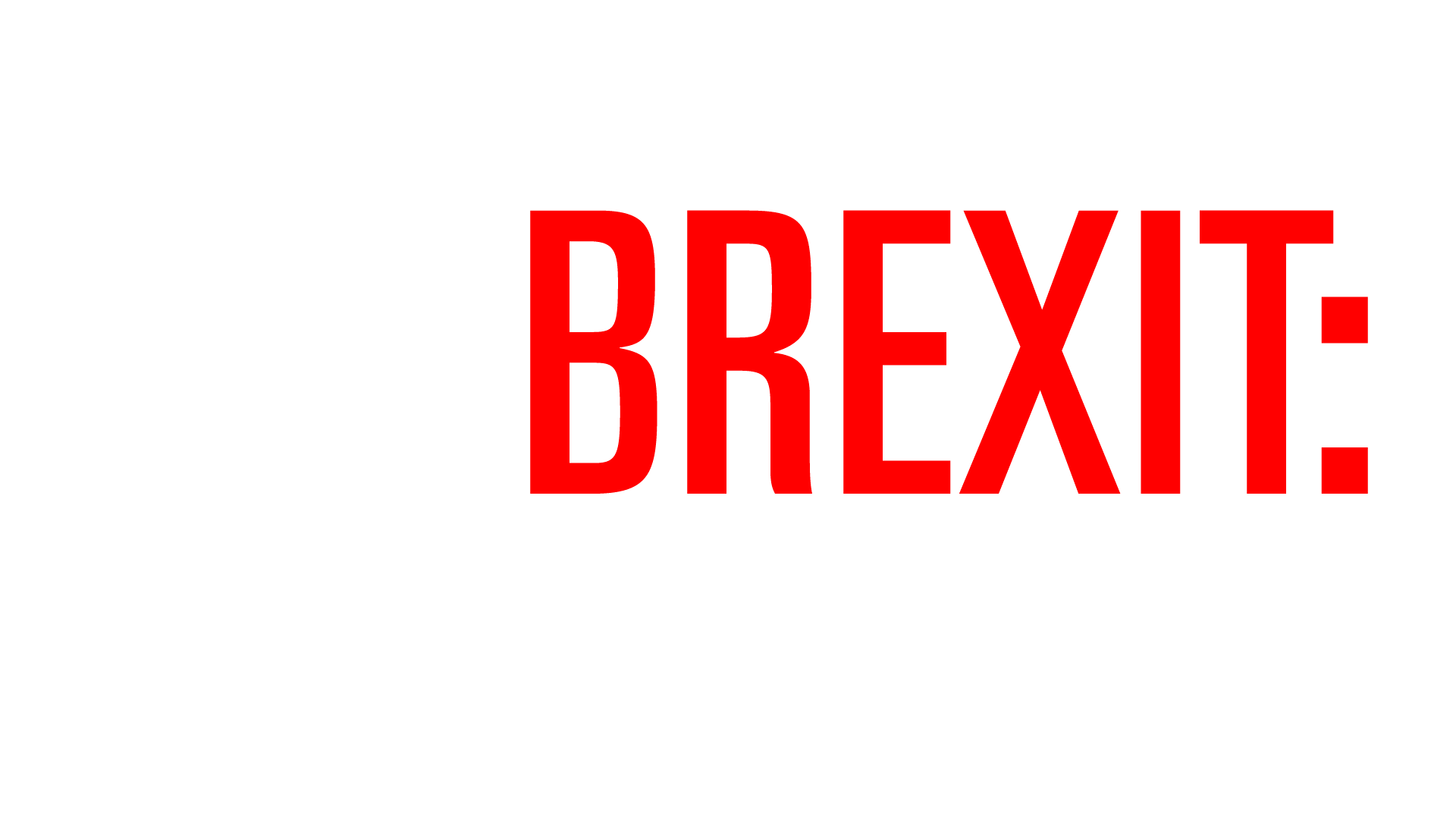

THE PAST OF THE UK AND EU
The UK was not a signatory to the Treaty of Rome which created the EEC in 1957. The country subsequently applied to join the organisation in 1963 and again in 1967, but both applications were vetoed by the President of France, Charles de Gaulle, who said that "a number of aspects of Britain's economy, from working practices to agriculture" had "made Britain incompatible with Europe" and that Britain harboured a "deep-seated hostility" to any pan-European project. Once de Gaulle had relinquished the French presidency in 1969, the UK made a third and successful application for membership. The question of sovereignty had been discussed at the time in an official Foreign and Commonwealth Office document (FCO 30/1048) that became open to the public in January 2002 under the rules for availability after thirty years. It listed among "Areas of policy in which parliamentary freedom to legislate will be affected by entry into the European Communities": Customs duties, Agriculture, Free movement of labour, services and capital, Transport, and Social Security for migrant workers. The document concluded (paragraph 26) that it was advisable to put the considerations of influence and power before those of formal sovereignty. The Treaty of Accession was signed in January 1972 by the prime minister Edward Heath, leader of the Conservative party. Parliament's European Communities Act 1972 was enacted on 17 October and the UK's instrument of ratification was deposited the next day (18 October), letting the United Kingdom's membership of the EEC, or "Common Market", come into effect on 1 January 1973. The opposition Labour Party, led by Harold Wilson, contested the October 1974 general election with a commitment to renegotiate Britain's terms of membership of the EEC and then hold a referendum on whether to remain in the EEC on the new terms.
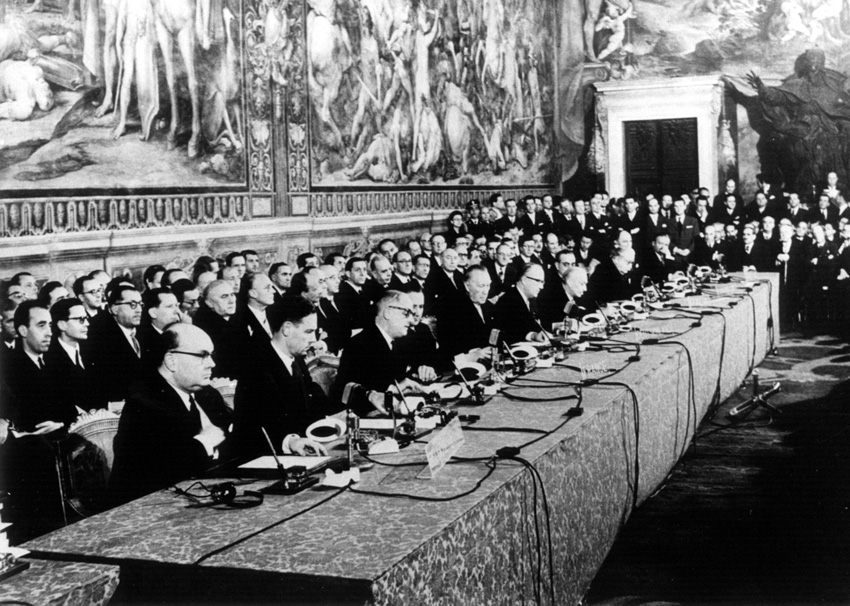
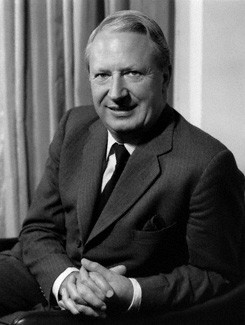
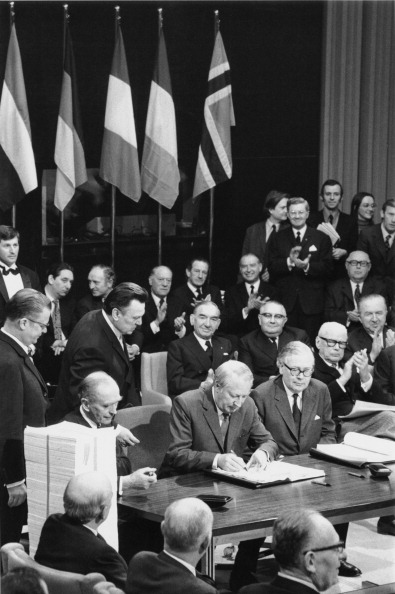
In 1975, the United Kingdom held a referendum on whether the UK should remain in the EEC. All of the major political parties and mainstream press supported continuing membership of the EEC. However, there were significant splits within the ruling Labour party, the membership of which had voted 2:1 in favour of withdrawal at a one-day party conference on 26 April 1974. Since the cabinet was split between strongly pro-European and strongly anti-European ministers, Harold Wilson suspended the constitutional convention of Cabinet collective responsibility and allowed ministers to publicly campaign on either side. Seven of the twenty-three members of the cabinet opposed vvEEC membership.
On 5 June 1975, the electorate were asked to vote yes or no on the question: "Do you think the UK should stay in the European Community (Common Market)?" Every administrative county in the UK had a majority of "Yes", except the Shetland Islands and the Outer Hebrides. With a turnout of 64%, the outcome of the vote was 67.2% in favour of staying in, and the United Kingdom remained a member of the EEC.
1975 REFERENDUM RESULTS:
REMAIN: 67.2%
LEAVE: 33.8%
In 1979 the United Kingdom opted out of the newly formed European Exchange Rate Mechanism (ERM) which was the precursor to the creation of the euro.
The opposition Labour Party campaigned in the 1983 general election on a commitment to withdraw from the EEC without a referendum. It was heavily defeated as the Conservative government of Margaret Thatcher was re-elected. The Labour Party subsequently changed its policy.
In 1985 the United Kingdom ratified the Single European Act, the first major revision to the Treaty of Rome without a referendum with the full support HM Government of Margaret Thatcher.
In October 1990 - despite the deep reservations of Prime Minister Margaret Thatcher but under pressure from her senior ministers - the United Kingdom joined the ERM with the pound sterling pegged to the deutschmark. In November 1990 Thatcher resigned as Prime Minister amid internal divisions within the Conservative Party arising partly from her increasingly Eurosceptic views. In September 1992 the United Kingdom was forced to withdraw from the ERM after the pound sterling came under pressure from currency speculators (an episode known as Black Wednesday). The resulting cost to UK taxpayers was estimated to be in excess of £3 billion.
As a result of the Maastricht Treaty, the EEC became the European Union on 1 November 1993. The new name reflected the evolution of the organisation from an economic union into a political union. As a result of the Lisbon Treaty, which entered into force on 1 December 2009, the Maastricht Treaty is now known, in updated form as, the Treaty on European Union (2007) or TEU, and the Treaty of Rome is now known, in updated form, as the Treaty on the Functioning of the European Union (2007) or TFEU.
The Referendum Party was formed in 1994 by Sir James Goldsmith to contest the 1997 general election on a platform of providing a referendum on the UK's membership of the EU. It fielded candidates in 547 constituencies at that election and won 810,860 votes, 2.6% of total votes cast. It failed to win a single parliamentary seat as its vote was spread out, losing its deposit (funded by Goldsmith) in 505 constituencies.
The UK Independence Party (UKIP), a Eurosceptic political party, was also formed, in 1993. It achieved third place in the UK during the 2004 European elections, second place in the 2009 European elections and first place in the 2014 European elections, with 27.5% of the total vote. This was the first time since the 1910 general election that any party other than the Labour or Conservative parties had taken the largest share of the vote in a nationwide election.
In 2014, UKIP won two by-elections, triggered when the sitting Conservative MPs defected to UKIP and then resigned. These were their first elected MPs. At the 2015 general election UKIP took 12.6% of the total vote and held one of the two seats won in 2014.
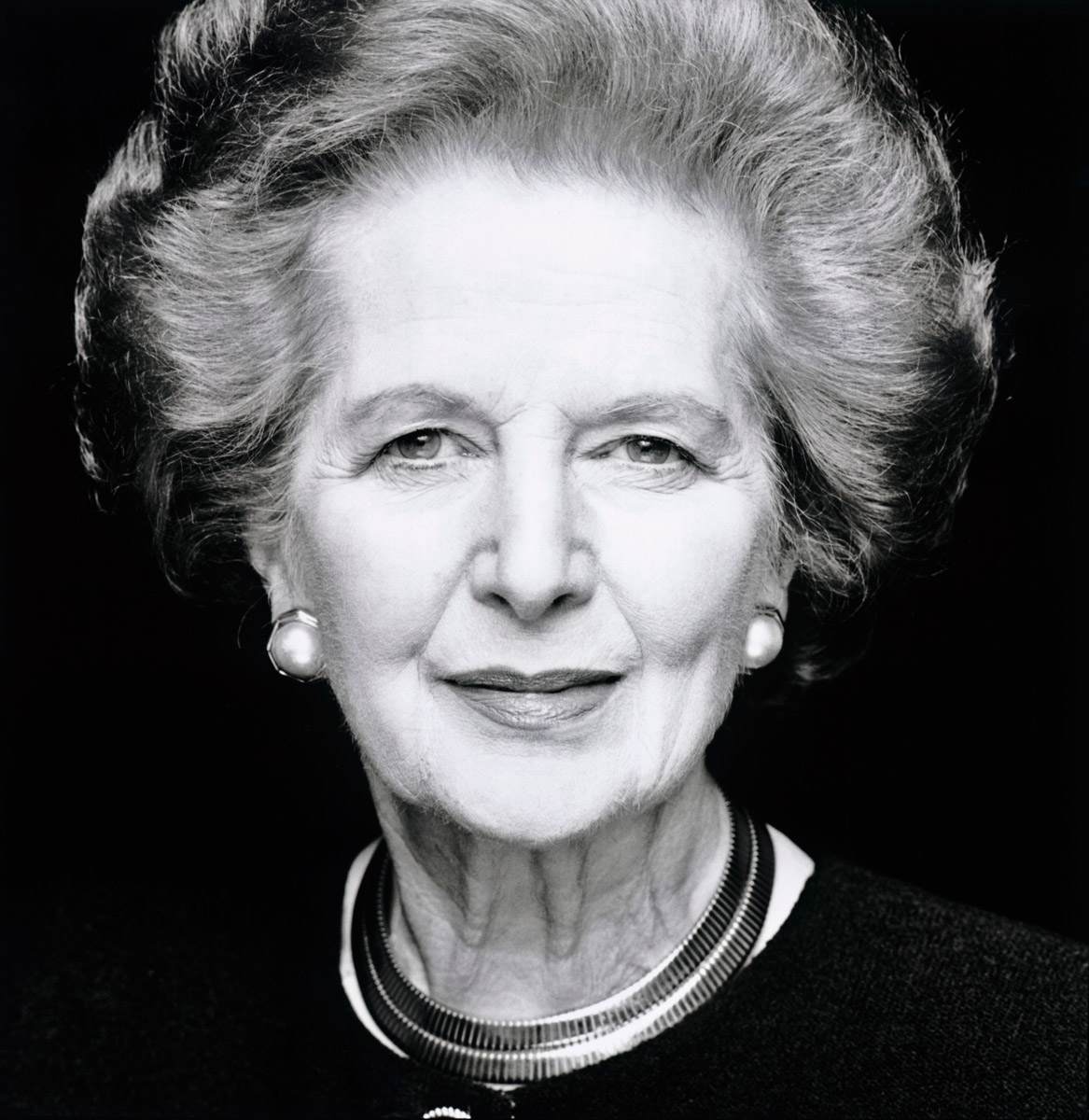
BLACK WEDNESDAY
COST: £3.3 BILLION
LOSS: £800 MILLION
EUROSCEPTIC: